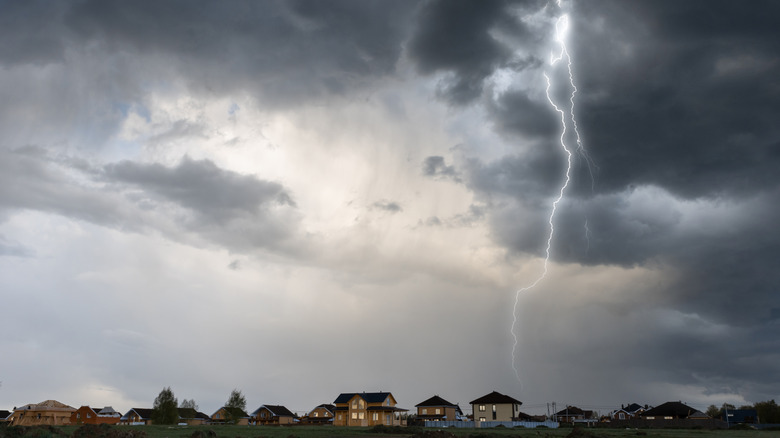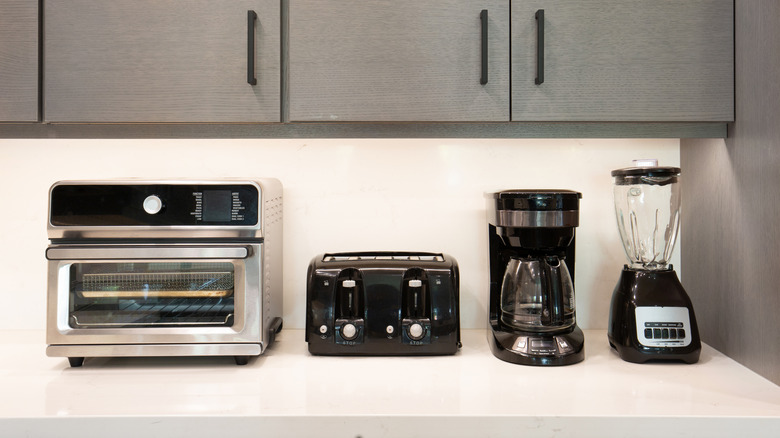Always Unplug These Kitchen Appliances When A Storm Is Coming
When you're making coffee in the kitchen or heating water in the kettle, you don't think of any harm that these appliances can cause. But if a storm hits your area, your kitchen (and these appliances) can quickly become a danger zone. Every year, lightning sparks about 4,400 house fires and 1,800 other structural fires in the U.S. according to the Maine Emergency Management Agency, and sometimes, these fires end in tragedies. The trouble doesn't start with the visible strike of lightning, though — it starts when a surge of electricity rushes via the wiring into your appliances. So not only can high voltage damage your appliances, but unplugging them before a storm can be life-saving.
Chris Doscher, director of communications for the Association of Home Appliance Manufacturers, told MSN that most major appliances — including ovens, stoves, refrigerators, freezers, dishwashers, washers, and dryers — are designed to handle the typical surges from a thunderstorm. You don't need to unplug them unless you are evacuating for a hurricane or a flood. In those situations, all appliances should be unplugged (except your fridge and freezer — they keep food safe during emergencies).
Smaller kitchen appliances, on the other hand, are a different story. Countertop appliances like coffee makers, mixers, air fryers, juicers, blenders, and toasters may not have built-in protection. They are more vulnerable to storm-related surges and should always be left unplugged when you're not using them. If you're away, a storm hits your area, and your appliances are plugged in, it could cause some serious damage. So unplugging them before you leave for a trip is a smart storm prep tip you should probably remember.
Simple habits to storm-proof your kitchen
When the first rumble of thunder rolls in, treat it as your cue to act fast. Storms can escalate in minutes, and if you wait until you see lightning or hear thunder, it may already be too late to protect your house. If vulnerable appliances are already unplugged as a part of your regular routine, you're good. But if they're not, the safest option is to unplug devices carefully and keep the cords away from any water source.
After the storm, once the skies clear, do not rush to plug everything back in. Power restoration can trigger a surge as well, so wait until electricity is stable to reconnect your devices. For some devices like refrigerators and freezers that remained plugged in, the U.S. Food and Drug Administration advises checking temperatures after a power emergency. For example, the refrigerator should stay at or below 40 degrees Fahrenheit, and freezers at or below 0. A full freezer can hold its temperature for about 48 hours if unopened. But remember, that perishable food in a drudge only lasts about four hours without power. If you've just experienced a power outage for more than four hours and you're not sure if certain food items are still good, err on the side of caution and discard them.
To make storms easier in the future, you can group small kitchen appliances on the same power strip (ensure it's surge-protected). And label the cords so it's easy for you to unplug them and act as fast as possible. For further protection, you can use a home lightning protection system that safely directs strikes into the ground and shields your appliances from destructive surges. This simple prep, if followed daily, can keep your kitchen surge-ready.

